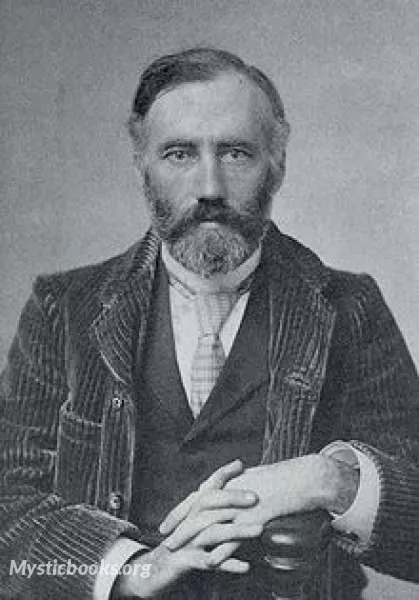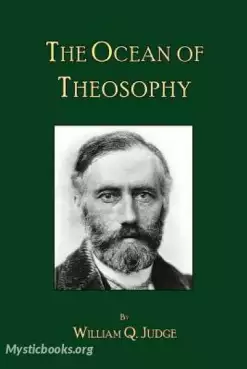
Timeline
Title
Country/Nationality
William Q. Judge
William Quan Judge was an Irish-American mystic, esotericist, and occultist, and one of the founders of the original Theosophical Society. He was born in Dublin, Ireland. When he was 13 years old, his family emigrated to the United States. He became a naturalized citizen of the USA at age 21 and passed the New York state bar exam, specializing in commercial law.
Judge was one of the seventeen co-founders of the Theosophical Society. Like Helena Petrovna Blavatsky and Henry Steel Olcott, he stayed in the organization when others left. When Olcott and Blavatsky left the United States for India, he stayed behind to manage the Society's work, all the while working as a lawyer.
When Blavatsky and Olcott left America, they left Theosophy in North America in Judge's hands. While Judge kept in close contact with both Blavatsky and Olcott through correspondence, there was little if any organized activity for the next several years.
In 1876, business affairs caused him to visit South America, where he contracted "Chagres fever", and he was ever after a sufferer from that torturing disease. Other "phases" of his experiences on this journey are recorded in his writings, often allegorical, suggesting the character of the occult contacts which may have been established on this journey.
In India, Blavatsky established a new headquarters. As a European, her efforts to restore respect for the Hindu faith were quite effective. As a result, she made enemies among the missionaries of Christianity. The Theosophical Movement 1875-1950 sets out some of the events that followed: "William Q. Judge, who arrived in India soon after the Coulombs had been sent away from headquarters, made a detailed examination of the false door constructed in Madam Blavatsky's "occult room".
In 1885, after his return to America, Judge set about to revitalize the Movement in the United States. The real beginning of the work of Theosophy in the United States began in 1886, when Judge established The Path, an independent Theosophical magazine. Until this time, not much had been accomplished in the way of growth of the Society in America. Mr. Judge addressed the common man in homely language and with simple reason. The Path showed that he had found himself and was now cultivating the area of his greatest usefulness, as a writer.
He also wrote: "The Christian nations have dazzled themselves with a baneful glitter of material progress. They are not the peoples who will furnish the clearest clues to the Path ... The Grand Clock of the Universe points to another hour, and now Man must seize the key in his hands and himself – as a whole – open the gate ... Our practice consists in a disregard of any authority in matters of religion and philosophy except such propositions as from their innate quality we feel to be true."
It has been said of Judge: "Everything he wrote of a metaphysical nature can be found, directly or indirectly, in the works of Madame Blavatsky. He attempted no new "revelation" but illustrated in his own works the ideal use of the concepts of the Theosophical Teachings." The Theosophical Mov't, 1875 - 1950. Over the years, Mr. Judge attracted to the Movement a nucleus of devoted followers. The movement grew steadily in America.
Judge wrote theosophical articles for various theosophical magazines, and also the introductory volume, The Ocean of Theosophy in 1893. He became the General Secretary of the American Section of the Theosophical Society in 1884, with Abner Doubleday as President.
Blavatsky often referred to the founding of the Theosophical Society as coming about as a result of occult direction from her teachers. Judge later wrote that the objects of the Society had been given to Olcott by the Masters before the meeting at which they were adopted. Thus, the founding of the Theosophy Society may be seen to have been inspired.
In 1881, looking back on the founding of the Society, Blavatsky wrote: "Our society as a body might certainly be wrecked by mismanagement or the death of its founders, but the IDEA which it represents and which has gained so wide a currency, will run on like a crested wave of thought until it dashes upon the hard beach where materialism is picking and sorting its pebbles ... " At this time, the affairs of the Society were largely in Olcott's hands.
After Blavatsky died in 1891, Judge became involved in a dispute with Olcott and Annie Besant, whom he considered to have deviated from the original teaching of the Mahatmas.
Judge died in 1896 in New York City.
Books by William Q. Judge

The Ocean of Theosophy
Judge wrote this book because he saw a need for a book about Theosophy that everyone could understand. Discussed are after-death states, reincarnation, karma, the pitfalls of pseudo-occultism, the 7 natures of man, cyclic evolution, sages and adepts,...